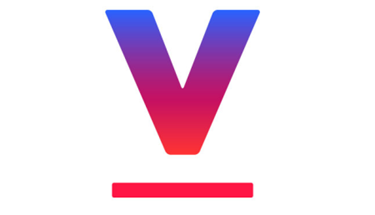Verily's Partnerships Thrive, Moonshot Projects Stumble
By Jof Enriquez,
Follow me on Twitter @jofenriq

Verily, the rebranded Google Lifesciences division of Alphabet, is arguably known more for its ambitious "moonshot" endeavors, but it's finding more success with its more modest pursuits. These have come in the form of key partnerships with established medtech and pharmaceutical companies.
For instance, its surgical robotics joint venture with Johnson & Johnson, called Verb Surgical, launched late last year. It will combine Google's data analytics expertise with J&J Ethicon's surgical instrumentation expertise to create a new platform in the increasingly competitive robotic surgery segment.
A partnership with DexCom is on track to launch its latest continuous glucose monitoring (CGM) device in 2018, and a next-generation, disposable CGM is slated for 2021.
Verily's signature product, the "smart lens" project with Novartis' Alcon unit, is reportedly ready for human trials this year. The device has embedded sensors capable of measuring glucose in tears, in contrast to traditional blood glucose monitoring using pinpricks.
However, the science underpinning Verily's smart lens device is being questioned. John Smith, a chemist and former chief scientific officer of the LifeScan division of J&J, told STAT's Charles Piller that — having evaluated more than 30 “noninvasive” technologies that measure glucose from body fluids other than blood — neither sweat, saliva, nor tears offer glucose readings that reflect the levels of glucose in blood.
STAT reports that a former Verily manager described the smart lens as "slideware" — a term meaning it exists only on PowerPoint presentations, and that Verily produced a failed prototype. In response, Verily told STAT — in a written response to questions — that it is trying to improve tear-collection methods that might have skewed earlier findings.
“(T)here is always a new adherent who thinks all the measurements that went before were wrong,” Smith countered in an e-mail to STAT. “This kind of ‘faith-based science’ has proven to be very expensive, and should not come from companies like Verily; but then, cost does not seem to be an issue there.”
STAT also mentions Verily's Baseline genomics study, which aims to discover markers of disease before symptoms arise. The report cites experts from Harvard, Tufts, and Stanford, who say that the pool of 10,000 participants over five years will fall short of the study's lofty goals. Moreover, Baseline could "become mired in trivial or false patterns found in data" collected from such a small sample, given that human biology is inherently complex, according to the report.
Baseline, slated to enroll participants representative of the U.S. population this year, might “adapt and expand over time,” Verily told STAT. “While we agree that larger, broader studies also have value, it is designed to collect a rich, deep … dataset that we hope will be leveraged by the broader life science community for years to come.”
Verily has recruited top talent from academia and industry to work on its multi-disciplinary teams. “Imagine a chemist and an engineer and a doctor and a behavioral scientist, all working together to truly understand health and to better prevent, detect, and manage disease,” the company wrote on its homepage. “Picture a world in which technology and life sciences are not distinct, but partners with a united vision.”
The vision is noble and grand, but Verily may not be fully capable to realize it just yet, according to one expert interviewed by STAT.
“What (Verily is) really good at is physical measurements — things like temperature, pulse rate, activity level. They are not particularly good at … the chemical and the biological stuff,” said David Walt, a Tufts University chemistry professor and nanoscience expert, who had met previously with some of Verily's team of scientists working on the company's Tricorder. He described the device and its cancer-detecting nanoparticles as "not only science fiction, but beyond that — science fantasy.”
STAT said observers consider the hype around Verily as similar to that of beleaguered diagnostics firm Theranos, and quoted UC Berkeley business professor Jo-Ellen Pozner, who said that the two companies' “high-profile, media-savvy leaders made big claims without peer-review validation or real proof.”
Without referring to the STAT report, Verily's chief medical officer Jessica Mega later said on Bloomberg TV that Verily and its partners DexCom, J&J, Sanofi, and Novartis are currently focusing on areas that are ripe for innovation, such as diabetes care. She said that parent company Alphabet's backing allows Verily to work on a wide portfolio of projects and to "think big, to do things that may have a time horizon, that require rigorous science, that require the right studies."
Mega said Verily needs to continue to have three key things to be able to do "something different:” scientific rigor, talented teams of engineers and scientists, and a drive to "work towards transparency.”
